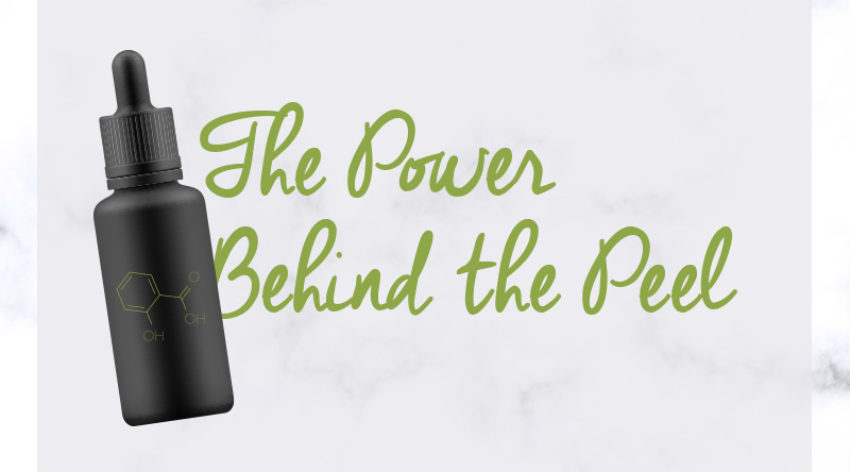
Which Chemical Peel is Right for You?
Voluntarily putting acid on your skin? It might sound counterintuitive, but it’s actually a proven technique that has been used since ancient times—yep, ancient Egyptian women were known to bathe in fermented grapes and sour milk to smooth their skin.
These treatments are now known as chemical peels are one of the most sought-after aesthetic treatment options available. With a limited number of side effects and rapid recovery times, chemical peels are a quick and easy way to address many common skincare issues. Chemical peel acids not only exfoliate, but can also erase sun damage, plump out wrinkles, even out texture, and help eradicate acne scarring.
Depending on the skincare issues that you are looking to address, we offer chemical peels using a variety of acids to get the results you are looking for.
Best for Acne: Salicylic
Looking for help in reducing breakouts? Clinical therapeutics studies show oil-soluble salicylic acid can penetrate sebaceous glands to help prevent clogging in pores and regulate the production of oil.
Best for Skin Resurfacing: Trichloroacetic
Used to reduce discoloration, improve melasma, and reduce fine, lines the TCA peel uses trichloroacetic acid to dry the top layers of skin so they peel off over a period of several days.
Best for Hydration: Hyaluronic
Hyaluronic acid has a well-earned nickname as “nature’s moisturizer,” and is known as the ultimate hydrator. Hyaluronic acid is naturally found in our bodies, but we produce less and less as we age. Used in a topical form, hyaluronic acid acts as a space filler by binding to water—it can retain more than 1,000 times its weight in water!—and keeping skin free of wrinkles.
Best All-Around: Lactic
Lactic acid can help those contending with multiple skin-related issues. A lactic acid peel will clear out toxins, dead cells and debris, while simultaneously boosting collagen production to hydrate the skin. Plus, this alpha-hydroxy acid derived from milk is less irritating than other options, making it perfect for those with sensitive skin.
Best for Brightening: Ascorbic
This extra pure form of vitamin C is known as a superstar antioxidant capable of neutralizing free radical damage caused by pollution and the sun’s harmful UV rays. Vitamin C can also brighten skin and improve elasticity since it helps synthesize collagen, which gives your skin its bounce.
Best for a New Face: Retinoic
This vitamin A derivative works well in erasing wrinkles and reducing acne. It works by strengthening blood vessels, boosting blood flow to the skin’s surface, and stimulating cell renewal.
Best for Exfoliation: Glycolic
Derived from sugar cane, glycolic acid is a favorite for those with acneic skin. It works to clear acne, blackheads and whiteheads, and can decrease oiliness in general.
Our team at Timeless Skin Solutions is happy to help you determine which skincare products are right for your skin needs. Request a consultation to receive a customized treatment plan perfectly suited for you.

